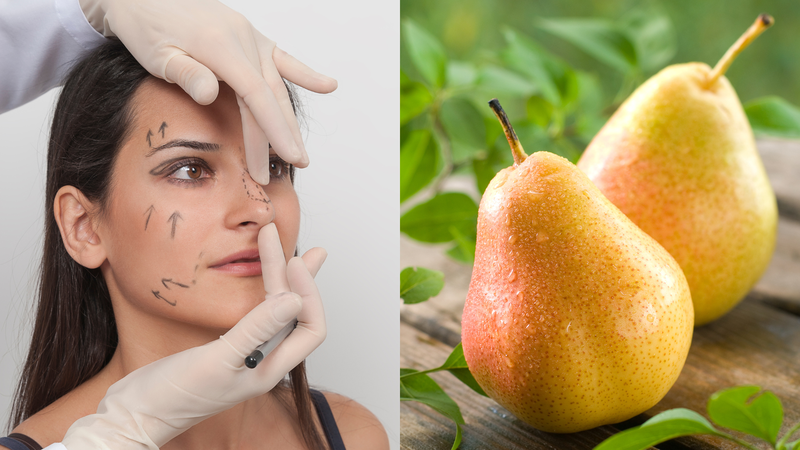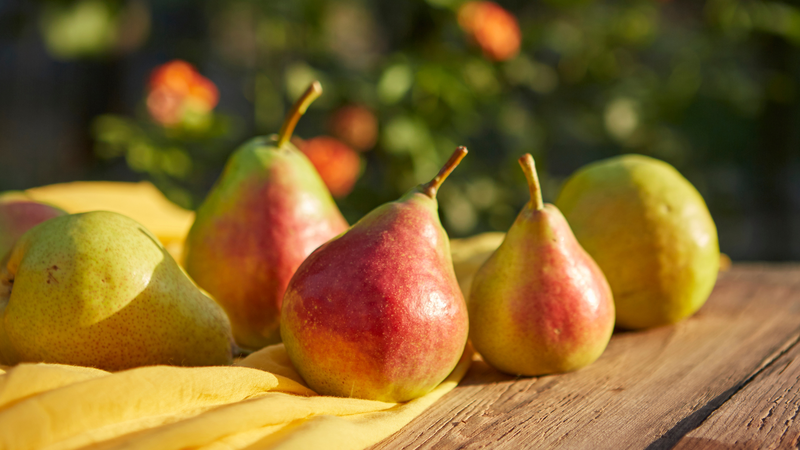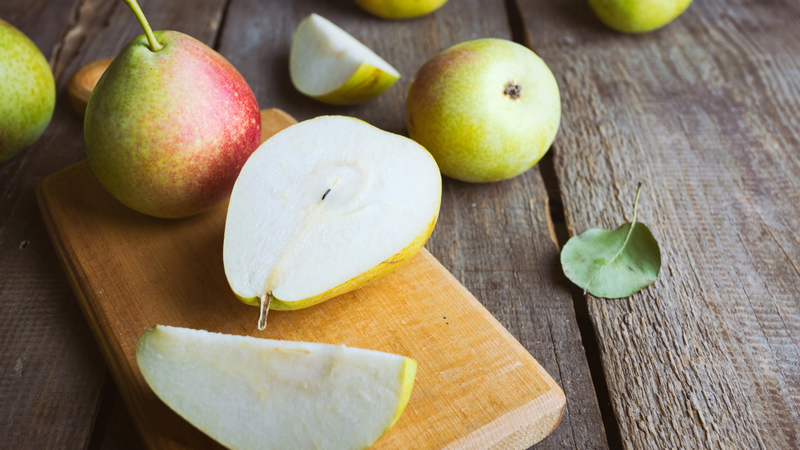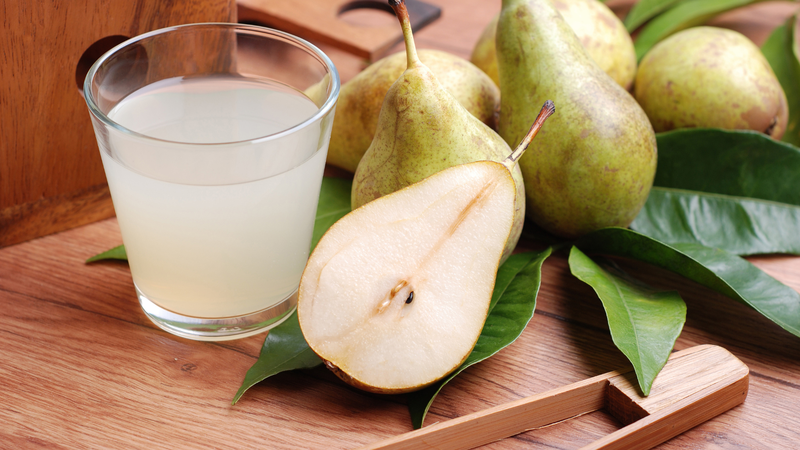Rhinoplasty is a big decision and taking care of yourself after surgery is equally important. One of the most frequently asked questions is: “Can I eat pears after rhinoplasty?”. The answer may surprise you! Let’s find out!
Having a beautiful, harmonious nose is the desire of many people, especially when rhinoplasty is becoming more and more popular. However, post-surgery nutrition plays an extremely important role in the recovery process and maintaining aesthetic results. One of the questions that many people are interested in is whether they can eat pears after rhinoplasty. The following article will help you get a detailed answer.
Can I eat pears after rhinoplasty?
Pears are a delicious and nutritious fruit, loved by many people. So, can I eat pears after rhinoplasty?
The answer is yes. After rhinoplasty, you can absolutely eat pears. In fact, pears are not only an important source of nutrients to help the body recover quickly, but also bring many benefits to the skin and the collagen regeneration process. With rich vitamin and mineral content, pears are a suitable choice in the post-surgery period.

Can people eat pears after rhinoplasty? This is a question many people have.
Benefits of Eating Pears After Rhinoplasty
Based on nutritional information from the USDA, 100 g of pears provide the following nutrients:
- Energy: 57 KCal.
- Fiber: 3.1 g.
- Protein: 0.36 g.
- Fat: 0.14 g.
- Carbs: 15.2 g.
- Calcium: 9 mg.
- Magnesium: 7 mg.
- Iron: 0.18 mg.
- Phosphorus: 12 mg.
- Vitamin B6: 0.029 mg.
- Vitamin C: 4.3 mg.
With a rich nutritional composition, pears bring many health benefits, especially after undergoing rhinoplasty surgery.
Here are the benefits of pears:
Rich in vitamin C
Vitamin C in pears is an important factor in the synthesis of collagen, a protein necessary for the healing and regeneration of the skin. After surgery, vitamin C supplementation helps the skin around the nose recover quickly, while reducing the risk of scarring.

After rhinoplasty surgery, supplementing vitamin C from pears helps the nose recover quickly.
Contains fiber
The fiber in pears helps improve digestive function and prevent constipation, a common condition after surgery due to changes in diet and medication. Eating pears will help the digestive system work more smoothly, helping the body absorb the maximum nutrients needed for the recovery process.
Strengthen resistance
Pears contain a lot of vitamins A, E, and minerals such as potassium and magnesium, which have the effect of strengthening resistance and anti-oxidation. This is especially important after surgery, when the body is easily weakened by stress and side effects of medication. Eating pears helps improve immunity, protect the body from pathogens and promote the recovery process.
Support to reduce swelling
After rhinoplasty, the nose area is often swollen due to the impact of surgery. Pears are cool, help clear heat and reduce swelling. Therefore, adding pears to the post-operative diet can help reduce swelling quickly and help your nose return to its natural shape soon.
Prevents Anemia
Pears contain a significant amount of iron, which helps prevent anemia – a common problem after surgery due to blood loss. Iron aids in the production of red blood cells, which supply oxygen to the body and boost energy, helping you feel better during the recovery period.

Pears contain iron which helps prevent anemia.
Notes on eating pears after rhinoplasty
Although pears are a nutritious fruit with many health benefits, after rhinoplasty, you need to pay attention to the following to ensure a smooth and safe recovery process:
Choose soft, ripe pears
After surgery, digestion may become more difficult due to medication and dietary changes. Therefore, you should choose soft, ripe pears that are easy to eat instead of hard or green pears that are difficult to digest. Naturally ripe pears have a shiny, evenly yellow skin and are not crushed or damaged.
Wash pears before eating
To ensure food hygiene and safety, before eating pears, you should wash the fruit under running water and use a soft brush to remove dirt, bacteria and pesticides that may be on the pear skin. This helps you avoid health problems caused by bacteria or chemicals, especially when the body is in the process of recovering.
Peel the pear before eating
Pear skin may contain pesticides that are not good for your health, especially after surgery when your body becomes more sensitive. Therefore, you should peel the pear before eating to ensure your health and not affect the healing process.
Cut the pear into small pieces
When the nose is still swollen after surgery, eating may be difficult. To make it easier to chew and digest, you should cut the pear into small, bite-sized pieces. This not only makes it easier for you to eat, but also helps you control the amount of food you take in, avoiding overeating.
Eat pears in moderation
Although pears are very nutritious, you should only eat about 1 – 2 pears per day, divided into small meals. Avoid eating too many pears at once because it can cause bloating and indigestion. You should also combine pears with other fruits and vegetables for a balanced and nutritious diet.

After rhinoplasty, you should eat pears in moderation.
In short, can you eat pears after a nose job? After a nose job, you can absolutely eat pears, not only because it is a delicious fruit but also because of the nutritional benefits it brings. Pears help strengthen the immune system, support swelling reduction and promote healing. However, to ensure optimal effectiveness, you need to choose soft, ripe pears, wash them and eat them in moderation. Maintaining a reasonable diet will help you recover quickly and maintain long-term aesthetic results.





